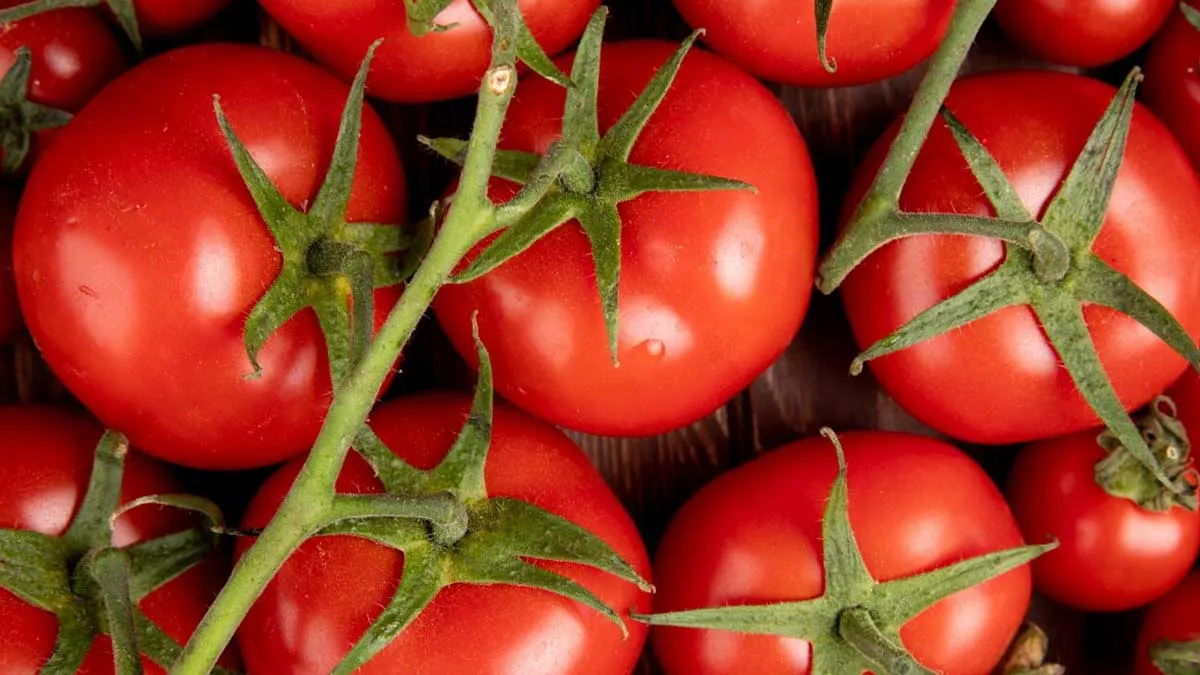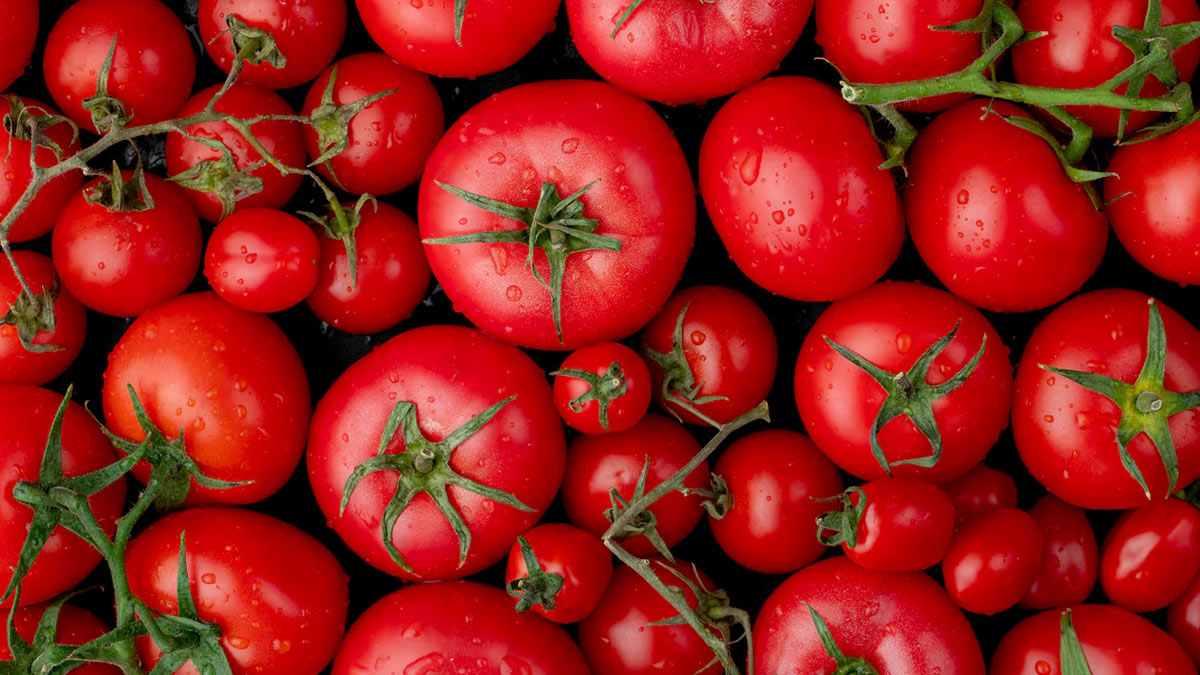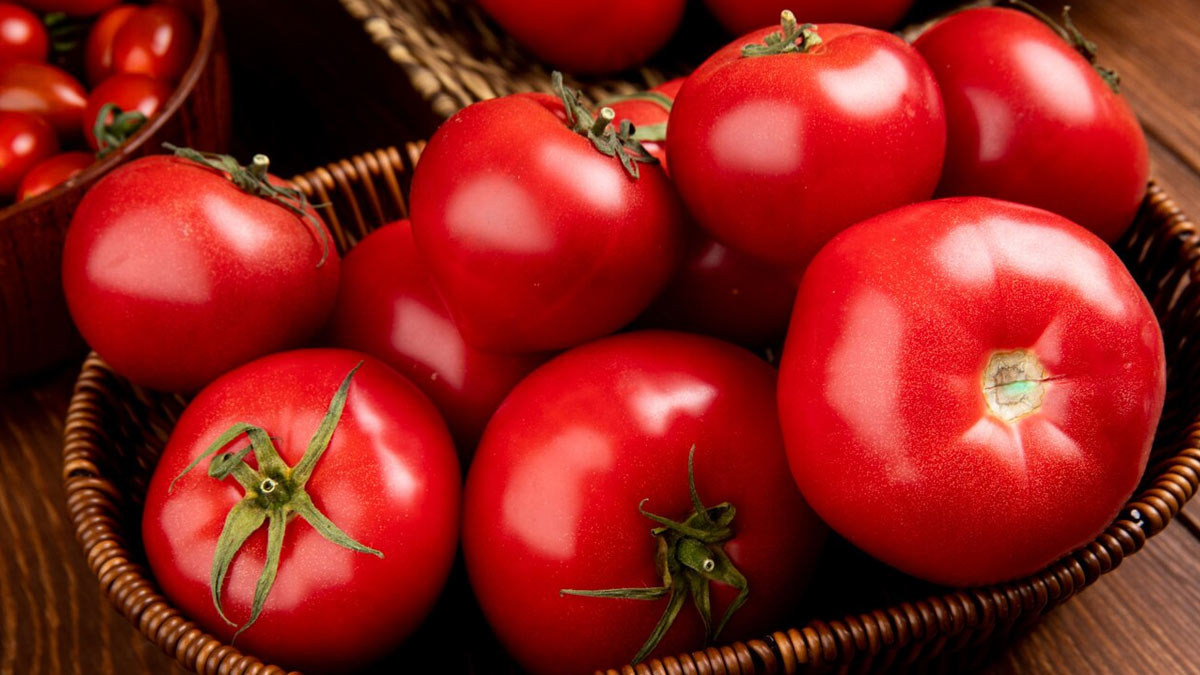
Indian cuisines are incomplete without tomatoes. They add sourness and flavour and also help thicken the sauces, particularly in curries and chutneys. The good thing about tomatoes is that they are rich in vitamin C, vitamin K, potassium, folate, and the antioxidant lycopene, which are beneficial for your overall health. However, tomatoes also contain oxalates, naturally occurring compounds that are most often found in plants and can bind to minerals like calcium. This is one of the reasons why oxalates are also said to cause kidney stones. So does that mean you should avoid eating tomatoes completely, or should you consider other factors that may contribute to kidney stone formation? Let’s find out.
Table of Content:-
Also Read: Oxalate Overload: How Healthy Foods Like Spinach And Almonds Can Contribute To Kidney Stones
How Much Oxalate Do Tomatoes Contain?

Your body can make oxalate on its own, or you can develop it through different kinds of foods. While tomatoes do contain oxalates, Dr Siddharth Lakhani, Consultant Nephrologist and Transplant Physician, SL Raheja Hospital, Mahim, A Fortis Associate, says that they are considered a low-oxalate food compared to others like spinach and nuts.
Dr Lakhani shares that one medium-sized tomato contains about five milligrams of oxalate, making it a low-oxalate food, whereas 100 grams of tomatoes contain about five mg of oxalates.
Can Tomatoes Cause Kidney Stones?

As discussed, tomatoes have low oxalate content, which is why regular tomato consumption doesn't significantly increase the risk of developing kidney stones, clarifies Dr Lakhani. He also adds that not all kidney stones are linked to oxalates.
According to the doctor, kidney stones are formed when minerals present in the urine, like calcium, crystallise and clump together. He explains, “Calcium oxalate stones are the most common type. While dietary oxalate can lead to calcium oxalate stone formation, it's not the sole cause. Other factors, like low fluid intake, high sodium intake, and certain medical conditions, can also play a role. Most importantly, not all types of kidney stones are linked to oxalates. Other types include uric acid, struvite, and cystine stones.”
A 2023 study published in the journal Healthcare suggests that kidney stones are more common in men aged 20–49. Key contributors include dehydration, high intake of sodium and animal protein, and low fluid consumption.
Additionally, conditions like obesity, diabetes, and hypertension also elevate the risk. It is also important to note that certain occupations and hot climates can further increase susceptibility.
Also Read: How Much Water Should You Drink In A Day To Pass Kidney Stones Naturally?
Dietary Tips To Prevent And Manage Kidney Stones

“Individuals with a history of kidney stones don't need to completely avoid tomatoes,” says Dr Lakhani, calling it a myth. On the contrary, one can continue consuming tomatoes in balanced portions and by focusing on a variety of foods and ensuring adequate hydration.For balancing oxalate intake, abide by the following steps:
- Follow a balanced diet and include a variety of fruits, vegetables, and other foods.
- Drink plenty of fluids, especially water, to dilute urine and prevent kidney stone formation.
- Eat calcium-rich foods, like dairy products, that can help bind to oxalate in the digestive system.
- Limit processed foods and high-sodium foods, as these can also contribute to kidney stone formation.
Conclusion
While oxalates are compounds that can contribute to kidney stone formation in people, they aren’t always the cause behind it. While tomatoes contain oxalate, they have a very low amount and hardly ever increase the risk of kidney stones. The key is following a balanced diet and ensuring proper hydration. Drinking plenty of water can not only prevent kidney stone formation, but it can also help in the removal of tiny stones without surgery. However, it is best to consult a doctor before making any medical decisions.
Also watch this video
How we keep this article up to date:
We work with experts and keep a close eye on the latest in health and wellness. Whenever there is a new research or helpful information, we update our articles with accurate and useful advice.
Current Version